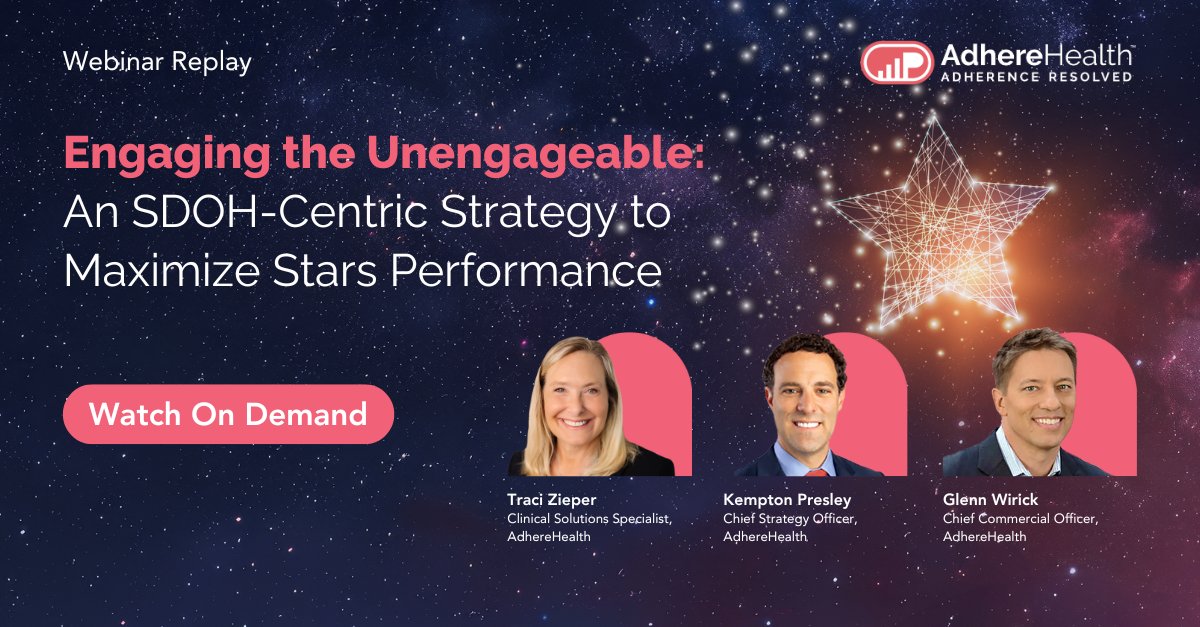Published on .
In the realm of healthcare, knowledge is indeed power. Health literacy plays a pivotal role in individuals’ abilities to understand and navigate the complexities of healthcare systems, make informed decisions about their health and ultimately lead healthier lives.
For Medicare Advantage members, enhancing health literacy not only helps improve overall well-being and health outcomes, it’s also on the forefront of adjustments to the Star Ratings system by CMS as the organization continues to champion improved access to healthcare with the Health Equity Index (HEI) and upcoming Social Needs Screening and Evaluation (SNS-E) measure. Among many challenges faced by MA plans to remain competitive, improving MA health literacy exists on the pathway to improved health equity for plan members.
With the right strategies in place, plans can effectively target socially vulnerable members currently facing health risks, uncover MA health literacy concerns and provide the education and support needed to improve health literacy for better health outcomes and adherence with healthy behaviors.
The challenge of health literacy
The capacity of individuals to obtain, process and understand the health information and services needed to make appropriate health decisions impacts their usage of available healthcare benefits and ultimately their health outcomes. Health literacy encompasses various skills, including reading, numeracy and comprehension, all of which are crucial for navigating healthcare systems effectively. For example, individuals on the lower end of the health literacy spectrum often face challenges with understanding medical instructions, interpreting health information and communicating effectively with healthcare providers.
Despite advances in healthcare, low health literacy remains a significant issue in the United States. The National Center for Education Statistics reports that approximately 36% of adults in the United States have limited health literacy due to limited education, language barriers, socioeconomic factors and age-related cognitive decline. This equates to about 90 million people.
The impact of low health literacy on overall quality of life (and the burden to our healthcare system) is significant. Individuals with limited health literacy are less likely to manage chronic diseases effectively (for example, they are 2.3 times more likely to have poor glycemic control in diabetes) and have a higher rate of hospitalizations and emergency services—they are 1.5x more likely to use the ED compared to those with higher health literacy.
Difficult, but not impossible, means of resolution
The inability to effectively maximize available healthcare benefits can have profound consequences on individuals’ lives and health outcomes. Low health literacy in Medicare Advantage members leads to misunderstandings about medications, treatment regimens and preventive care, which increases the risk of medication errors, missed appointments and avoidable hospitalizations.
Moreover, health plan members faced with low health literacy are also the same ones facing health disparities, as disadvantaged populations often experience inadequate access to healthcare services (for example, those in rural areas) or prescriptions (such as those located in pharmacy deserts), perpetuating cycles of poor health and socioeconomic inequality.
However, many individuals with the most significant social vulnerabilities, often considered the highest-risk and hardest to engage within a plan, are not necessarily impossible to engage. A recent webinar from AdhereHealth explored how successful connection with these members is often more effective in establishing adherence improvements than in members who aren’t facing social vulnerabilities. It’s all in making that first contact and empowering outreach clinicians to effectively communicate with and understand the needs of the individual member.
Four ways to drive improvements in health literacy and impact overall health outcomes
With the right strategies in place, MA plans can foster improved health literacy, helping to drive better health outcomes, reduce healthcare costs and strengthen their competitive position in the market:
1. Utilize a data-driven approach to identify at-risk members.
MA plans can leverage data analytics to identify members who may be at risk of low health literacy. By partnering with a vendor to analyze demographic information and healthcare utilization patterns, plans can pinpoint individuals who may benefit from targeted interventions to improve health literacy. Additionally, incorporating health literacy assessments into member surveys and clinician outreach conversations can provide valuable insights into members’ literacy levels and specific areas of need.
2. Implement educational outreach and simplified communications.
To help members better understand their Medicare plan benefits, MA plans can employ various educational outreach strategies tailored to different literacy levels and learning preferences. This may include providing plain language materials, visual aids and multimedia resources that simplify complex healthcare concepts and terminology. By delivering information in clear, accessible formats, plans can empower members to make informed decisions about their coverage options, preventive services and care management programs.
3. Champion the power of motivational interviewing.
Motivational interviewing is a patient-centered communication technique aimed at eliciting behavior change by exploring individuals’ motivations, values and goals. When outreach clinicians utilize motivational interviewing techniques during member interactions, they approach members in a way that helps build trust and rapport. In this way, clinicians can uncover and address any social determinants of health (SDOH) barriers that may be hindering a member’s adherence with or access to healthcare services or medications. The conversation can also help a clinician understand any health literacy challenges the member may be facing, providing an opportunity for education and guidance. By fostering collaborative, non-judgmental conversations, plans can empower clinicians to guide members toward healthier behaviors.
4. Connect with and support community resources.
Recognizing that health literacy is influenced by broader social and environmental factors, MA plans can collaborate with community organizations, healthcare providers and other stakeholders to address systemic barriers to MA health literacy. This may involve supporting literacy programs, health education initiatives and community outreach efforts that promote health literacy skills and empower individuals to take control of their health. By fostering partnerships with trusted local resources, plans can enhance their capacity to reach diverse populations and tailor interventions to specific community needs.
Empowering Medicare Advantage members with improved health literacy is not only a moral imperative but also a strategic investment for plans seeking to enhance performance, drive better health outcomes and promote health equity. By implementing targeted strategies to identify, educate and support members with low health literacy, plans can empower individuals to make informed decisions about their health, navigate healthcare systems effectively and ultimately lead healthier, more fulfilling lives.
For more information about reaching and engaging socially vulnerable members to improve both health literacy and adherence with healthy behaviors, schedule a consultation.

Kempton Presley
AdhereHealth Chief Strategy Officer

